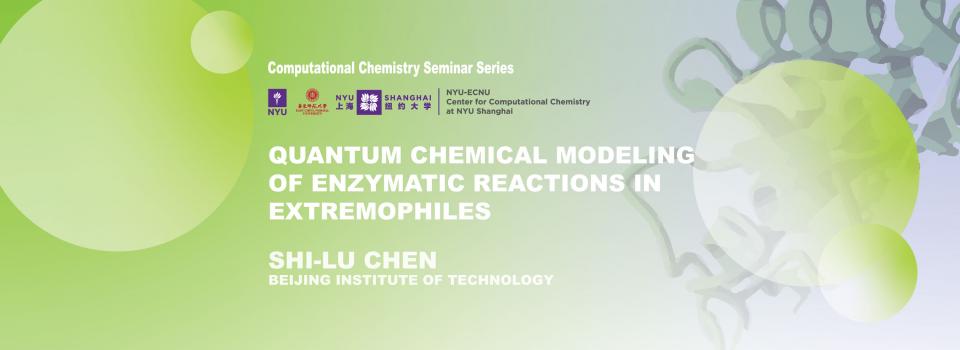
Zoom ID: 972 1044 66079
Passcode: 192061
- Join Via Zoom -
Abstract
The extremophiles are the microbes living in special environments, such as hot spring, mine drainage, and hydrothermal vent. They often have special metabolisms. The mechanisms of their enzymatic reactions are important for understanding the metabolism of matter and energy in microbes and the biogeochemical element cycles, and also are the important prototypes for biomimetic catalysis. Using the quantum chemical modeling method (Figure 1), we have investigated a lot of enzymatic reactions in extremophiles, such as methanogenic archaea, perchlorate-reducing bacteria, and anaerobic ammonium oxidation bacteria. This talk will focus on the partial enzymatic reactions in methanogenic archaea and perchlorate-reducing bacteria.
Biography
Professor Shi-Lu Chen is Professor of Chemistry at School of Chemistry and Chemical Engineering, Beijing Institute of Technology. He graduated in Chemical Education from Beijing Normal University in 2001, and received his master degree of Analytic Chemistry at Beijing Normal University in 2004. After that, He received his first Ph.D. degree of Physical Chemistry at Beijing Normal University in 2008, under the direction of Professor Wei-Hai Fang, and his second Ph.D. degree of Biotechnology at Royal Institute of Technology (KTH) in 2009, supervised by Professor Fahmi Himo. He then spent one and half years as a Postdoctoral Fellow at the Stockholm University with Professor Per Siegbahn. From 2010 to 2012, he was an Associate Professor at Beijing Institute of Technology before He obtained a professor position at the same university. His research interests lie in the fields of quantum chemical modeling of enzyme reactions, in particular, metallo-enzymes.
Seminar Series by the NYU-ECNU Center for Computational Chemistry at NYU Shanghai


